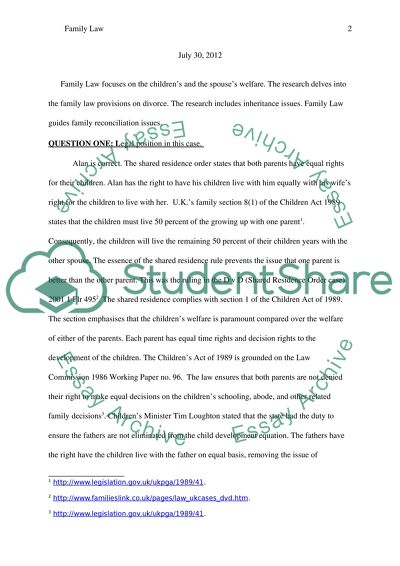Cite this document
(“Family Law Essay Example | Topics and Well Written Essays - 3000 words”, n.d.)
Family Law Essay Example | Topics and Well Written Essays - 3000 words. Retrieved from https://studentshare.org/law/1400419-family-law
Family Law Essay Example | Topics and Well Written Essays - 3000 words. Retrieved from https://studentshare.org/law/1400419-family-law
(Family Law Essay Example | Topics and Well Written Essays - 3000 Words)
Family Law Essay Example | Topics and Well Written Essays - 3000 Words. https://studentshare.org/law/1400419-family-law.
Family Law Essay Example | Topics and Well Written Essays - 3000 Words. https://studentshare.org/law/1400419-family-law.
“Family Law Essay Example | Topics and Well Written Essays - 3000 Words”, n.d. https://studentshare.org/law/1400419-family-law.


